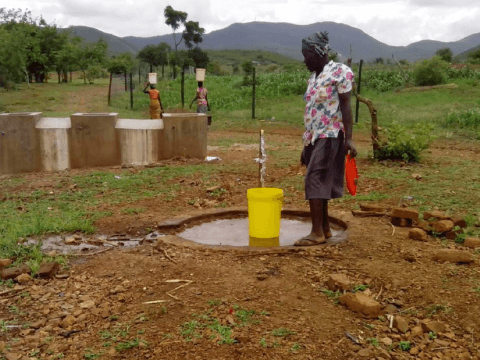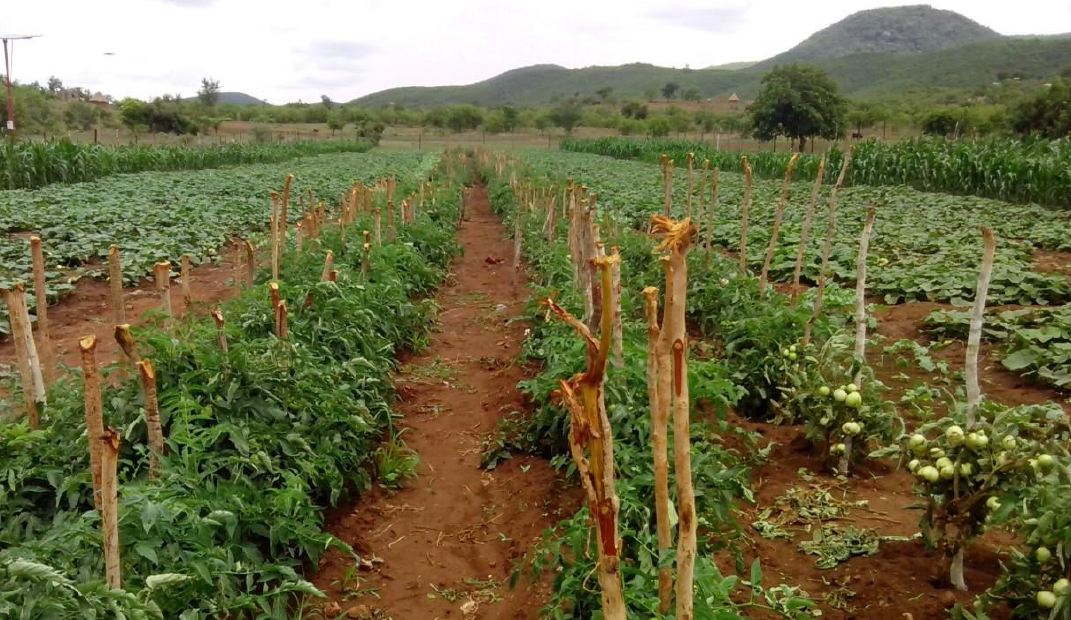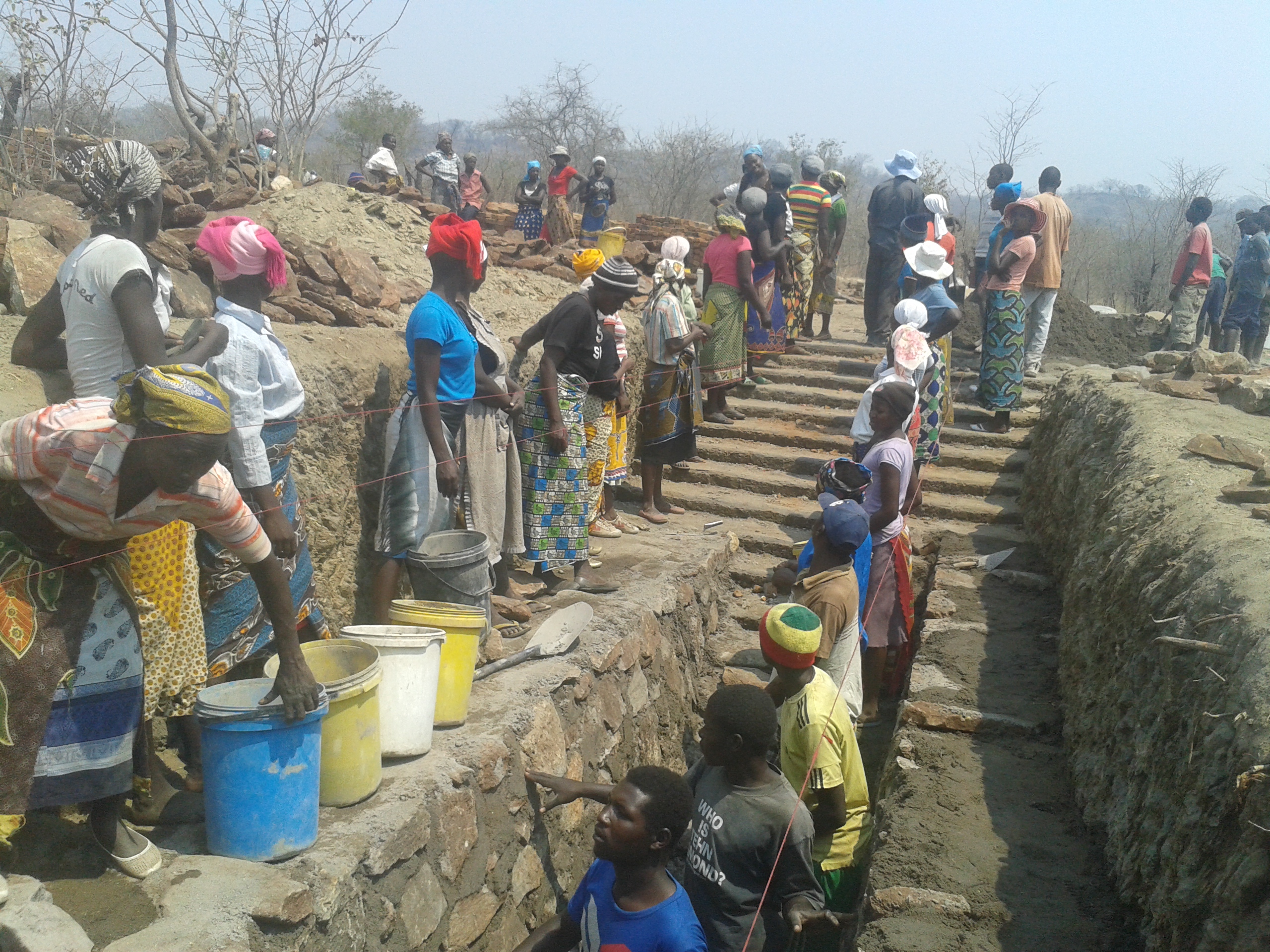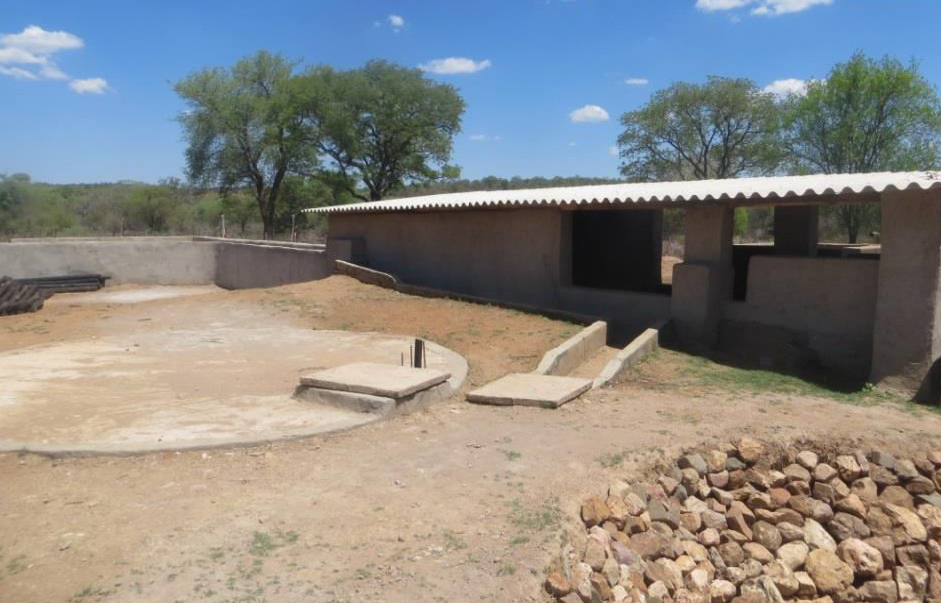Building community resources together: productive assets creation in Zimbabwe

Community member collecting water at the rehabilitated community water point.
“This was a blessing from the Almighty,” explains Sikabayi, a beneficiary of one of World Vision’s productive asset creation (PAC) projects in Hwange district. She goes on to explain that through the Mabale PAC project her village now has a safe dip tank for their cattle, a community garden growing nutritious crops, and clean water to drink. Sibabayi is just one of over 14,000 beneficiaries of the PAC project in Zimbabwe.
What is productive asset creation?
According to the World Food Program (WFP), PAC works to empower vulnerable communities to move away from dependency on food assistance and lead in the creation of assets that increase their resilience to future food security shocks. Practically, PAC is a way to establish and rehabilitate community infrastructure—including small dams, dip tanks for livestock hygiene and access roads—as a way to ensure that communities have access to food, even during lean agricultural seasons.
Target beneficiaries are able bodied (non-labor constrained) yet chronically vulnerable who live in areas that are affected by recurrent extreme weather events. In Zimbabwe, this programme works with communities to rehabilitate community, household and co-managed assets in order to diversify diets, enhance natural resources, improve crop yield, livestock productivity, strengthen market integration and collaboration with the private sector.
Flourishing garden in a PAC assisted community garden.
Understanding Hwange and Mudzi districts
Implemented by World Vision Zimbabwe with support from WFP and the Government of Zimbabwe, World Vision’s PAC programme worked to improve food security and the nutritional status of target communities in Hwange and Mudzi districts by increasing resilience to shocks through productive asset creation and the enhancement of income opportunities for food insecure households.
The Hwangeand Mudzi districts lie in regions that are generally dry, and usually receive less than 650mm of rainfall per year. Even with a dry climate, community members rely on rain-fed agriculture as the main livelihood. Changes in weather patterns have left local communities particularly food insecure in the past few years. In an effort to address this issue, World Vision Zimbabwe and partners have collaborated with communities to rehabilitate and establish productive assets within the communities.
Partnering with the community for change
Throughout 2015, World Vision Zimbabwe worked with community members to build and rehabilitate key community assets through a cash and food for work/assets programme. In Mabale, four key community assets were supported by 120 community workers, who rehabilitated dip tanks and boreholes and constructed livestock troughs and a community garden, complete with fencing.
Across all of the project sites in Hwange and Mudzi, 14,085 beneficiaries (including 6,927 children and 2,960 workers) benefitted from the construction and rehabilitation of six dams and six dip tanks, as well as the creation of four gardens for long-term sustainability. For their participation in this project, beneficiaries received a total of 666,755 metric tons of food and $405,900 cash to meet immediate food needs.
Community members in the Mudzi district work together to build a community dip tank.
Looking to the long-term
The PAC has had great success in the communities where it has been implemented. Community members are appreciative that the project leaves behind tangible assets that enhance long-term community resilience. PAC programmes are a powerful bridge between relief and development, evolving food assistance from an emergency intervention to one that supports both the immediate relief and long-term development needs of a community. In this way, PAC programmes empower community members to radically transform their communities and create lasting improvements in health, nutrition and education outcomes.
As Sitshengisiwe, an agriculture extension worker in the Mabale ward shared, “I am very happy about this project […] given the importance of agriculture for the livelihoods of the rural poor, agricultural growth has the potential to greatly reduce food insecurity – a key contributor to poor health and malnutrition.”
World Vision is proud to partner with communities to build productive assets and a hunger-free future.
Mabale community dip tank before and after rehabilitation through the PAC project. Livestock are no longer getting hurt in the dipping process.



